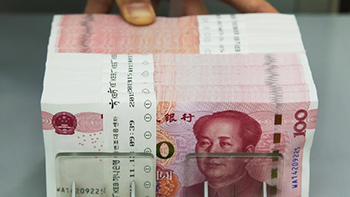(单词翻译:单击)

When China signed up to build Venezuela’s Tinaco-Anaco Railway in 2009, the scheme was hailed as proof of the effectiveness of socialist brotherhood.
中国2009年签署为委内瑞拉修建迪纳科-阿纳科高铁(Tinaco-Anaco Railway)的协议时,该计划被称颂为印证了社会主义兄弟情谊的有效性。
Gleaming new Chinese trains were envisaged, whisking passengers and cargo along at 137mph on about 300 miles of track.
按照设想,在约300英里长的轨道上,一趟趟崭新的中国造列车将满载旅客和货物以137英里/每小时的速度穿行。
Hugo Chávez, the late Venezuelan president, called the $800m project socialism on rails and said the air-conditioned carriages would be available to everyone, rich or poor.
委内瑞拉已故总统乌戈•查韦斯(Hugo Chávez)当时将这个8亿美元的工程称为铁轨上的社会主义,并表示,所有委内瑞拉人,不论贫富,都将可以乘坐这些空调列车。
But the endeavour has become what locals call a red elephant, the vandalised and abandoned symbol of Venezuela’s deepening economic crisis.
但该项目已变成当地人口中的红色大象——在委内瑞拉不断加重的经济危机中被破坏、被放弃的象征物。
A slogan written in Chinese characters on an archway into a deserted construction site has taken on an ironic tone. Dare to leap ahead, it says.
一处废弃建筑工地的拱门上用中文写着勇于跨越,如今读起来颇具讽刺意味。
For China, the project represents more than just an isolated example of a dream turned to dust.
对中国而言,这一工程的意义不只是一个梦想破碎的孤立个案。
Over the past decade, the country has transformed itself from a marginal presence to the dominant player in international development finance with a loan portfolio larger than all six western-backed multilateral organisations put together.
过去10年,中国在国际发展融资领域已从一个边缘角色转变为主导者,其放贷规模超过了六家西方支持的多边机构的总和。
Outstanding loans from the two big Chinese policy banks and 13 regional funds are well in excess of the $700bn owed to the western-backed institutions, according to a recent study.
最近一项研究显示,中国两大政策性银行和13只地区性基金的贷款余额已大大超过西方支持的机构贷出的7000亿美元。
But in the process of leaping ahead, China’s state development banks and funds have taken on a welter of risk in some of the most unstable countries in Latin America, Africa and Asia.
但在这种跃进过程中,中国政策性开发银行和基金在拉美、非洲及亚洲一些最不稳定的国家承担着巨大风险。
As projects turn sour, the largesse and unorthodox lending protocols that have characterised China’s global financial diplomacy are undergoing a thorough re-evaluation, Chinese officials say.
中国官员表示,随着一些工程不断出问题,慷慨、非正统的放贷模式——这是中国金融外交的特征——正受到全面重估。
When commodity prices were high, the Chinese policy banks saw all these loans as great investments to help Chinese firms go global, to diversify their foreign exchange reserves and make new friends, says Kevin Gallagher, professor of global development policy at Boston University’s Pardee School for Global Studies.
大宗商品价格高企时,中国的政策性银行将这些贷款视为帮助中国企业走出去、实现外汇储备多元化并结交新朋友的重要投资,波士顿大学帕迪全球问题研究院(Boston University’s Pardee School of Global Studies)全球发展政策教授凯文•加拉格尔(Kevin Gallagher)说,如今,大量贷款看起来都充满风险,他们正在迅速地开展更全面的尽职调查。
Now a lot of it just looks a lot like risk and they are rapidly working to do better due diligence.A Chinese official with the influential National Development and Reform Commission, the government ministry responsible for economic planning, says frustration is mounting in Beijing over poor returns from unsatisfactory projects and a sense that state lenders have in the past taken on too much risk in unstable countries.
中国国家发改委(NDRC)一名官员表示,由于有些项目效益不佳,加上意识到了国有银行在不稳定的国家承担了太多风险,北京方面正感到越来越受挫。发改委是中国负责经济规划的实权机构。
China had no choice but to lend a lot to risky countries because they had the commodities we needed and because the western multilateral organisations already dominated the rest of the world, the official says.
中国那时别无选择,只能大量贷款给高风险国家,一个原因是他们拥有我们需要的大宗商品,还有一个原因是西方的多边机构早已主导了世界其他地区的发展融资,上述官员表示,
These days we need viable projects and a good return.
现如今,我们需要切实可行的项目和良好的回报。
We don’t want to back losers.
我们不想支持失败者。


